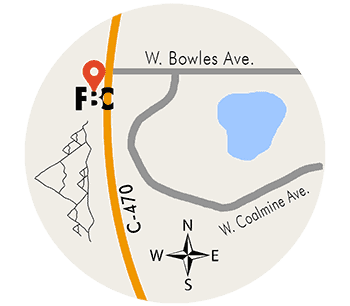
START HERE
Are you getting started on your spiritual journey? We want to help you grow in your new faith. Click on the button below and we will help you find next steps.
Commonly Asked Questions About Christianity
What is sin?
Sin is breaking the Law of God. 1 John 3:4 says, “Sin is lawlessness.” Sin is a deviation from the will of God. God’s standard of moral perfection is what we are all obligated to obey and when we do not, we have sinned. (Romans 3:23) God has revealed his moral character in the Law as the standard of good and to violate that standard is sinful and earns us spiritual death (Romans 6:23).
What is salvation?
All who have sinned against God are under the judgment of God. Being a Christian means that you have escaped the righteous judgment of God. We believe Salvation is only by grace through faith based upon the redemptive work of our Lord Jesus Christ through His death upon the cross, in our place. All who receive the Lord Jesus Christ through faith are born again of the Holy Spirit and thereby are adopted as children of God.
What can I expect when I become a Christian?
Getting saved is easy. The hard part is what follows after you become a Christian when the Lord begins a work of change in you (for the better). Sometimes it can be quite difficult but other times it is very rewarding. God will accept you just as you are, but He will not leave you as you are. He will work sinful habits out of your life. Of course, this does not mean that you will become perfect. It means that God will work in your heart to make you more like Jesus. If you become a Christian and then continue to live in sinful ways, the Holy Spirit will gently and convincingly prod your heart and bring you to a place of repentance. This is what you can expect, but it is worth it.
What is Christianity?
“What is Christianity?” is best answered by saying that it is a relationship with the true and living God through the person of Jesus Christ by whom we are forgiven of our sins and escape the righteous judgment of God.
What is the Bible?
The Bible is a collection of 66 books written by about 40 authors, in three different languages, on three different continents, over approximately 1600 years. The Bible says about itself that it is inspired by God and inerrant. This means that it came from God and that it is without error in everything it addresses. The Bible is God’s Word to all people. The Bible is divided into two sections, the Old Testament and the New Testament. If you are interested in reading the Bible we recommend you begin with the book of John in the New Testament.
Is the Bible reliable?
Yes, the Bible is reliable. The original writings of the Bible have been lost. But before they were lost, they were copied. These copies were incredibly accurate, very meticulous, and very precise. The people who copied them were extremely dedicated to God and their copying tasks. They took great care when copying the original manuscripts. This copying method is so exact, and so precise, that the New Testament alone is considered to be 99.5% textually pure. While copying mistakes occur in such ways as word repetition and spelling, nothing affects doctrinal truth and the words and deeds of Christ are reliably transmitted to us. The Bible is so exceedingly accurate in its transmission from the originals to the present copies, that if you compare it to any other ancient writing, the Bible is light years ahead in terms of number of manuscripts and accuracy. If the Bible were to be discredited as being unreliable, then it would be necessary to discard the writings of Homer, Plato, and Aristotle as also unreliable since they are far less well preserved than the Bible.
Who is God?
The Bible teaches us that in all existence, from all eternity, there has been and always will be only one God. God was never created, is completely loving, completely just, completely holy, completely merciful, and that He desires the best for us. God is holy, and He can have nothing to do with sin as the Bible says, “His eyes are too pure to look upon evil,” (Hab 1:13). This does not mean that God cannot see what someone does that is wrong. It is a way of describing how holy God is. God cannot sin. He is perfect.
We believe in one God, who is a personal and eternal Spirit, perfect and unchangeable in all His attributes. This one God eternally exists in three persons, impossible of division, but capable of distinction as Father, Son, and Holy Spirit. All have precisely the same nature, attributes and perfections, and are worthy of precisely the same honor, confidence and obedience.
Who is Jesus?
Jesus is the central figure of Christianity and its founder. He was born of a virgin, lived a perfect life, died on the cross for our sins, and three days later He rose from the dead. Jesus said, “I am the way, and the truth, and the life; no one comes to the Father, but through Me,” (John 14:6).
Who is the Holy Spirit?
The Holy Spirit is the third person in the Trinity. He is fully God. He is eternal, omniscient, omnipresent, has a will, and can speak. He is alive. While he is not particularly visible in the Bible, it is because His ministry is to bear witness of Jesus (John 15:26). Some say that the Holy Spirit is nothing more than a force. This is false. The truth is that the Holy Spirit is a person the same as the Father and the Son are within the Trinity.
Can a Christian lose their salvation?
It is our belief that a Christian cannot lose their salvation. We base this on many references in the Bible. For example, in Romans 8:29-39 it says, “Who shall separate us from the love of Christ? Shall tribulation, or distress, or persecution, or famine, or nakedness, or danger, or sword? As it is written, “For your sake we are being killed all the day long; we are regarded as sheep to be slaughtered.” No, in all these things we are more than conquerors through him who loved us. For I am sure that neither death nor life, nor angels nor rulers, nor things present nor things to come, nor powers, nor height nor depth, nor anything else in all creation, will be able to separate us from the love of God in Christ Jesus our Lord.”
For more explanation on what FBC believes regarding these questions, see Our Beliefs.
(Source credit: Christian Apologetics & Research Ministry)



